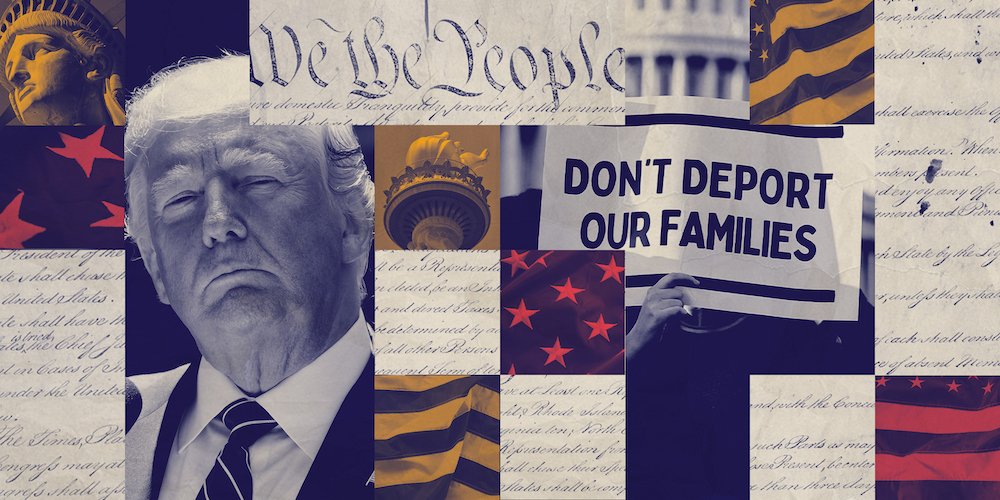
President Donald Trump’s immigration policies have reached a pivotal and contentious stage. The administration has expanded its deportation efforts to include legal immigrants, green card holders, and those married to U.S. citizens, sparking legal battles and political backlash. This shift marks a significant escalation in Trump’s promise to deport millions of undocumented immigrants, but it also risks alienating moderate voters and provoking widespread public opposition.
A Broader Target List
Initially, Trump’s immigration agenda focused on deporting undocumented immigrants with criminal records. However, recent actions indicate a broader scope. Immigration agents have detained individuals such as a Lebanese doctor on a valid visa, German tourists, and immigrants married to U.S. citizens. These cases have drawn public attention and criticism, particularly when court orders blocking deportations have been ignored.
For example, Rasha Alawieh, a kidney transplant specialist with a valid visa and a court order temporarily halting her removal, was deported despite legal protections. Federal authorities justified the action by citing alleged ties to Hezbollah based on photos found on her phone. Similarly, German tourists attempting legal entry were detained for weeks before being deported. Such incidents highlight the administration’s aggressive approach, which often disregards judicial rulings.
Legal and Political Implications
Trump’s expanded deportation strategy has sparked legal challenges and raised questions about its political viability. The administration recently invoked the Alien Enemies Act of 1798 to deport over 100 Venezuelans accused of gang affiliations. Critics argue that this colonial-era law lacks due process safeguards and could lead to civil liberties violations. Deportation flights proceeded despite a judge’s order to halt them, showcasing the administration’s willingness to push legal boundaries.
Public opinion on deportations varies significantly depending on the circumstances of the individuals targeted. While there is strong support for removing violent criminals, sympathy decreases when it comes to immigrants who have lived in the U.S. for decades or are parents of U.S.-born children. This nuanced perspective poses a challenge for Trump as he seeks to balance his hardline immigration stance with potential political fallout.
Historical Echoes and Resource Constraints
Trump’s mass deportation plans echo past efforts like the Eisenhower administration’s 1950s operation targeting undocumented immigrants. However, implementing such a large-scale campaign today faces logistical hurdles. The U.S. immigration system is already strained by limited detention capacity and backlogged courts. Deporting millions would require significant resources, including expanded detention facilities and increased personnel.
To address these challenges, the administration has sought state cooperation. For instance, Texas Governor Greg Abbott has offered detention facilities and National Guard troops to support federal efforts. Despite these measures, the scale of Trump’s deportation goals remains daunting.
Fear and Backlash
The intensified enforcement has instilled fear in immigrant communities nationwide. Even green card holders are being advised to avoid travel due to heightened risks of detention or deportation. Advocacy groups warn that high-profile cases of legal immigrants being targeted could lead to broader public opposition.
Beatriz Lopez of the Immigration Hub cautioned that these actions could result in “death by 1,000 cuts,” eroding public support for Trump’s policies over time. The administration’s disregard for judicial orders further undermines confidence in its adherence to the rule of law.
Conclusion
Trump’s escalated deportation efforts represent a high-stakes gamble with significant political and legal risks. By targeting legal immigrants and ignoring court rulings, the administration risks alienating moderates while energizing opposition from immigrant rights advocates and civil liberties groups. As public scrutiny intensifies, Trump’s immigration agenda may face growing resistance both in the courts and at the ballot box.